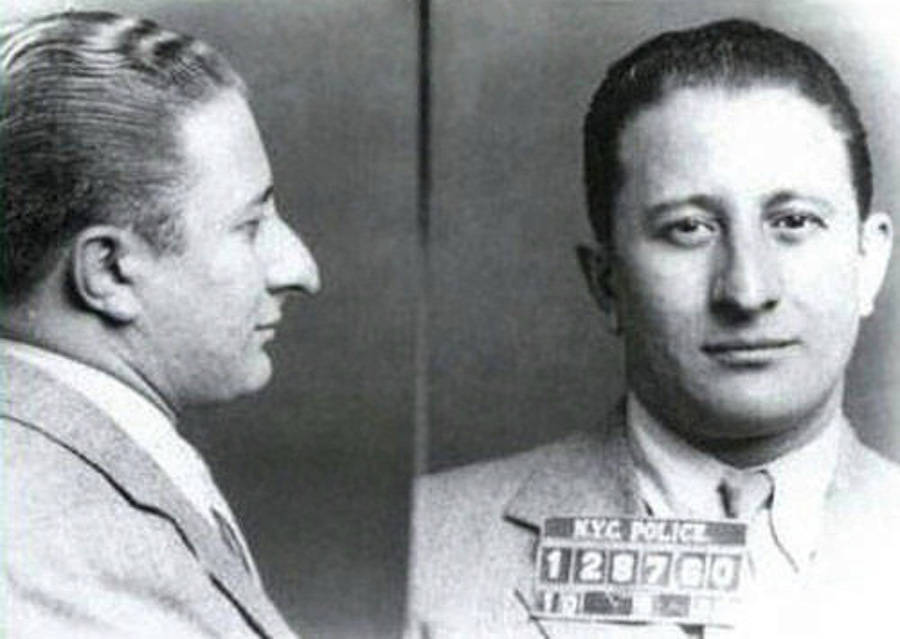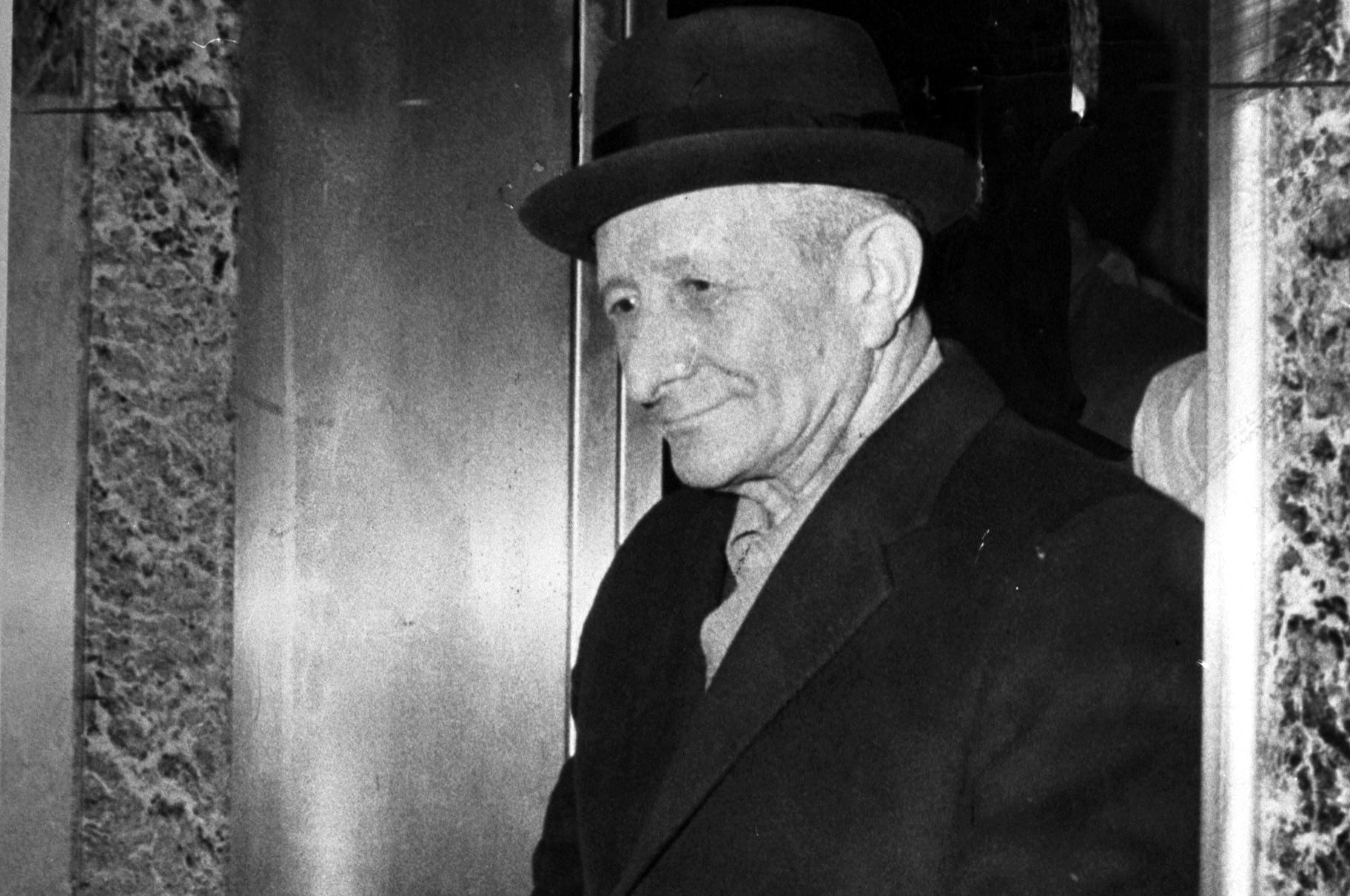Carlo Gambino: The Silent Don's Rise & Fall | Biography
Does the phrase "sleeping with the fishes" hold a deeper meaning beyond a cinematic clich? For the men of the Mafia, the final moments before death were often steeped in a ritualistic pursuit of redemption, a paradoxical quest for divine grace even as they clung to lives built on violence and deceit.
Carlo Gambino, the man known as "The Silent Don," remains one of the most significant figures in the annals of organized crime. His influence permeated the criminal underworld, leaving an indelible mark that continues to shape its operations and structures. On a recent Thursday, law enforcement agencies joined forces to announce a major crackdown on the Mafia in New York, a move that included indictments against the leadership of the Gambino crime family, one of the five dominant syndicates operating in the city.
| Full Name | Carlo Gambino |
| Nickname | The Silent Don, Don Carlo |
| Born | September 1, 1902 (official), August 24, 1902 (claimed) |
| Birthplace | Palermo, Sicily, Italy (official), Caccamo, Sicily, Italy (claimed) |
| Died | October 15, 1976, in bed |
| Cause of Death | Heart Attack |
| Parents | Tommaso Gambino and Felicia Castellana |
| Spouse | Kathryn Castellano |
| Children | Thomas Gambino, Joseph Gambino, and others |
| Crime Family | Gambino Crime Family |
| Position | Boss (1957-1976) |
| Known For | Strategic leadership, expansion of the Gambino family's influence, control of the American Mafia Commission |
| Alliances | Inzerillo, Spatola, and Di Maggio Sicilian clans |
| Key Events | Castellammarese War, Apalachin Meeting |
| Interesting Fact | Reportedly influenced the portrayal of mafia figures in The Godfather film. |
| Reference | Britannica - Carlo Gambino |
In stark contrast to the intimidating personas often associated with mob bosses, Carlo Gambino was, in physical terms, unassuming. He possessed a quiet demeanor and a strategic mind, which often caught his adversaries off guard. If the Mafia were to have a dodgeball team, the saying went, Gambino would have been the last one chosen, illustrating the deceptive nature of his power. His fellow don, Joe Bonanno, famously described him as "a squirrel of a man, a servile and cringing individual," a description that belied the iron will beneath the surface.
Born on September 1, 1902, in the second official district of Palermo, Sicily, Carlo Gambino's life began in a world far removed from the opulent lifestyle he would later command. However, he often used August 25 as a birthdate when he declared his intention to become a naturalized citizen, a date that is cited in many secondary sources. This subtle manipulation of facts, a characteristic of his strategic approach, reveals the complex nature of the man.
Carlo Gambino's rise to power within the Sicilian underworld and the American Mafia is a narrative of ambition, cunning, and ruthless efficiency. He masterminded the Gambino family's expansion, becoming a force to be reckoned with in the criminal landscape of New York and beyond. He was a key player in the Commission, the governing body of the American Mafia, holding significant sway over the activities of other families. His legacy is not one of overt brutality, but of shrewd decision-making and calculated maneuvering.
The Gambino Crime Family, under Carlo's leadership, became one of the most powerful and influential of the Five Families. Their reach extended into numerous illegal activities, including gambling, loan sharking, extortion, and labor racketeering. The family's financial success was built on a foundation of strategic alliances and a reputation for swift and decisive action against those who threatened their interests.
The strategic alliances forged by Gambino extended beyond the borders of the United States. He established a relationship with Sicilian clans, including the Inzerillos, the Spatolas, and the DiMaggios. These connections provided crucial support and expanded the family's operations both domestically and internationally. This network allowed him to control the flow of various criminal ventures and consolidate his power.
Carlo Gambino's early life and the circumstances of his arrival in the United States remain somewhat shrouded in mystery. He is believed to have immigrated to the United States in 1921 as a stowaway. This period, when many Italians sought refuge in America, coincided with a time of great social and economic upheaval. The allure of the American dream attracted many, but for young Carlo, the promise of prosperity was intertwined with a life of crime.
Gambino's involvement in the Castellammarese War, a bloody struggle between rival factions within the Italian-American Mafia in the early 1930s, further solidified his position within the criminal hierarchy. The war pitted the forces of Salvatore Maranzano against those of Joe Masseria. Gambino is believed to have played a key role in the events that led to the eventual consolidation of power under the newly formed "Commission," of which he would later become a prominent member.
The Apalachin meeting in 1957, a gathering of top Mafia bosses in upstate New York, became a turning point in law enforcement's understanding of the scope and organization of the American Mafia. While the raid on the meeting caused some disruption, it did not diminish Gambino's influence. In 1959, after the imprisonment of Vito Genovese, Gambino shrewdly seized the opportunity to assume control of the Commission, effectively becoming the "boss of bosses" and consolidating his power over the entire American Mafia.
The influence of Carlo Gambino extended far beyond the streets of New York. His actions and decisions shaped the landscape of organized crime in the United States. His legacy continues to be felt in various facets of popular culture, including books and films, with some of the most influential works of cinema, such as "The Godfather", borrowing heavily from his life and experiences.
The rise of Carlo Gambino highlights the complex interplay of ambition, opportunity, and ruthlessness. He was a master strategist, adept at exploiting the weaknesses of his rivals and manipulating events to his advantage. His reign, from 1957 to his death in 1976, was marked by relative stability and a consistent expansion of the Gambino family's power and wealth.
Gambino's leadership was characterized by discipline and a carefully cultivated image of respectability. He avoided the flamboyant lifestyle of some of his contemporaries, preferring a more understated approach. This deliberate choice allowed him to maintain a low profile and evade the attention of law enforcement, a critical element of his enduring success.
The article you mentioned also spoke of how much has been written about mafiosi making their peace with god before shuffling off this mortal coil. It is a fact that before death, many of these men had their relationship with God as a priority. It is an irony because their entire life was built on violence and crime.
The narrative of organized crime, with its dramatic highs and lows, can be an intriguing subject. The details of the lives of these powerful men are fascinating and in many ways, reflect the broader history of the 20th century. The stories of Gambino and other crime bosses have shaped public perception. They are often cast as both villains and, at times, as anti-heroes. The reality, of course, is much more complicated. The individuals behind the labels of "Don" or "boss" were complex characters. Their influence continues to shape how we understand crime, power, and the very nature of the American dream.
Carlo Gambinos death, which came peacefully in his bed on October 15, 1976, stood in stark contrast to the violent ends of many of his contemporaries. The circumstances of his death further amplified his reputation. It was an image of a man who had navigated the treacherous world of organized crime for decades. His peaceful passing seemed almost ironic. In the end, he had secured his legacy as a master of strategy. He had maintained control over the Gambino family and the American Mafia Commission for an extended period. His life serves as a powerful case study in the dynamics of power, ambition, and the enduring allure of the criminal underworld.
The Gambino family, like the other Five Families, had a far-reaching impact. They were deeply embedded in various industries. Their influence was felt in labor unions, construction, and even the entertainment industry. These criminal organizations exploited these sectors for financial gain, leaving a trail of corruption and violence. The recent crackdown on the Gambino family demonstrates the ongoing efforts of law enforcement to dismantle these criminal networks and address their lasting legacy.
The actions of law enforcement in recent years highlight the enduring relevance of these organizations. Their activities serve as a constant reminder of the persistent challenges involved in combating organized crime. It highlights the continued need for vigilance and collaboration across different levels of law enforcement to protect communities from their influence.
The story of Carlo Gambino is more than just a history of crime; it is a reflection of the American experience. The story is rooted in the dreams and realities of immigrants and in the opportunities, both legal and illegal, that America offered. It is a tale of how one man rose from obscurity to become a symbol of power in the criminal world. The story encompasses themes of strategy, corruption, and the complexities of human nature.
The origins of the Mafia can be traced back to the formation of Salvatore D'Aquila's gang in 1910. D'Aquila was a key member of the Morello family, an organization led by Don Giuseppe Morello, who controlled the territory of the former Italian Harlem in northern Manhattan and his right-hand man, Ignazio Lupo (The Wolf), who controlled the territory of Little Italy in southern Manhattan. These early figures laid the foundation for the development of the American Mafia, paving the way for men like Carlo Gambino to rise to power.
From the streets of Palermo to the boardrooms of New York City, the life and career of Carlo Gambino offers a fascinating glimpse into the underbelly of American society. It is the story of an immigrant who rose to unimaginable heights, the silent don. His influence on the world and the legacy he left behind continue to captivate, raising questions about power, morality, and the lasting impact of organized crime.


